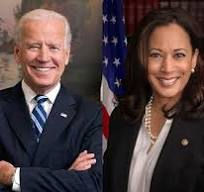One Person, One Vote
- Gwennie Mae

- Apr 28, 2020
- 3 min read
My post "Does Your Vote Count" created quite a firestorm on my Facebook page. The comments ranged from agreeing with the content to name-calling, as conservatives do when they can't make a decent argument.
Take this exchange, for example:
"Electoral college does count everyone who votes. Everyone votes are not equal in a federal system."
"Maybe your problem is not with the Electoral College but the federal system itself. The federal government is to represent the states. The states represent the people of that state."
"If we remove the electoral college, then we will no longer be a republic, but a mob rule democracy."
"Without the electoral college, three cities will dictate the entire countries policies. The democrat party leaders in Congress are from NY and CA, and if the president also is elected by NY and CA, how is that any different than a one-party system like China." - Jimmy Fike
Then there was Jim Raditz, who said that many facts could be found on Google. When I challenged him to provide said information, he said he wasn't going to do my research for me. If he wants to argue the point, then HE needs to provide facts to support his argument. Right?
Then there was the gal who said I must be mad because Wyoming only gets two senators, like California. Say what? Does she not know that each state has two senators?
Of course, there is always the person who argues with insults, such as Ted Knowles: "Ya have to be kidding! Try the Michigan Governor! Please remove your cranium from your anal cavity!" He posted more insults and I won't bore you with his comments.
What gives me faith in what I write are the people who give me facts and even Supreme Court rulings, such as my friend Morris Wolffe.
Morris told me about a case out of Tennessee, Baker vs. Carr. The crux of this case is mostly about the legislative districts that did not change from 1901 to 1960. During that time, the population in Tennessee shifted from primarily rural people to urban and suburban. The Tennessee General Assembly did not enact a reapportionment plan. Each time the redistricting plans were voted on, they failed to pass.
In 1961, Charles W. Baker and other voters sued Tennessee for not updating the apportionment plan according to the shifting state population. Voters in rural areas had more power than those in urban or suburban areas.
So, the Constitutional questions are (from Baker v. Carr Supreme Court Case, Arguments, Impact ):
Can the Supreme Court rule on a case regarding apportionment? The Fourteenth Amendment Equal Protection Clause says that a state cannot "deny to any person within its jurisdiction the equal protection of the laws." Did Tennessee deny Baker equal protection when it failed to update its apportionment plan?
The Baker case said that each vote should carry equal weight, regardless of where the voters live. In short, Justice William Brennan wrote that Tennessee violated the right of equal protection, as stated in the 14th Amendment in the Constitution. Justice Warren said that alleged voting inequalities are not political questions simply because they asserted wrongdoing in the political process.
After the decision, the Court formulated the famous "one person, one vote," standard under American jurisprudence for legislative redistricting, holding that each individual had to be weighted equally in legislative apportionment.
So, back to my original question in my blog post, "Does Your Vote Count?" According to Morris and this Supreme Court case, the one person, one vote is already the law of land. With the Electoral College in play, people's votes do not count. The Electoral College is no longer necessary for electing the President of the United States.
There is a lot of great information about the Baker v Carr case. If I included all that I found, I would be plagiarizing already excellent summaries.
Wikipedia has several useful links, and so does Brittanica. My favorite is the one I cited earlier Baker v. Carr Supreme Court Case, Arguments, Impact.






Comments